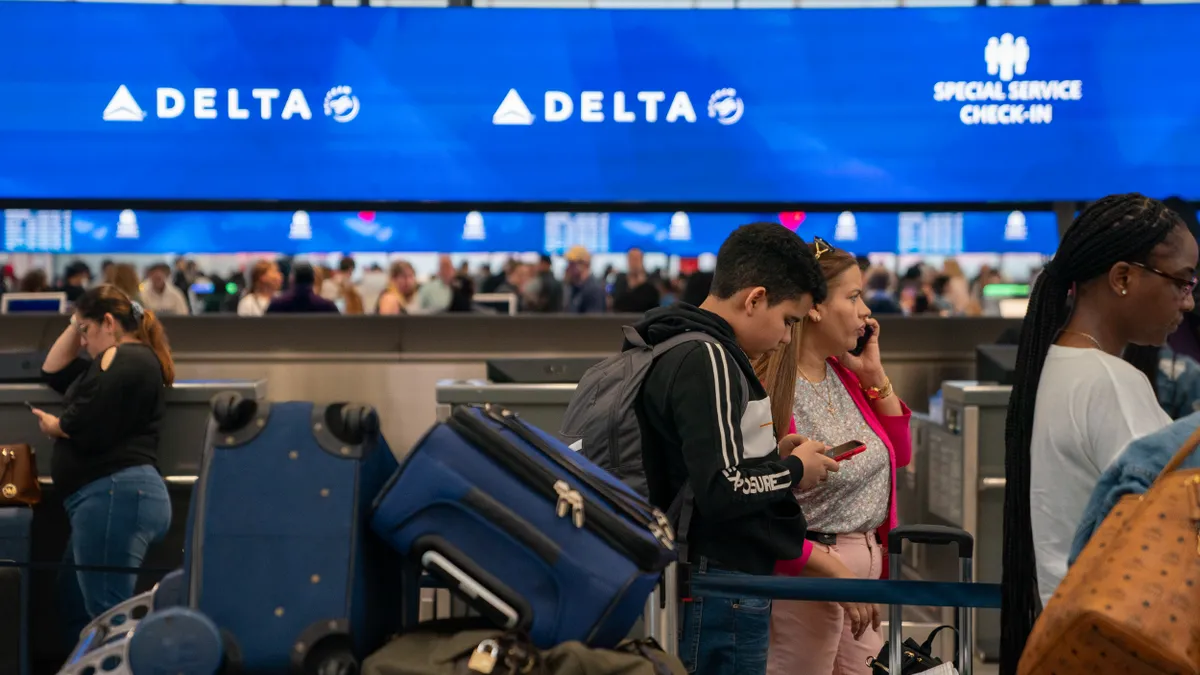Dive Brief:
- Delta Air Lines will raise its starting minimum wage to $19 an hour and boost pay by 5% for all eligible employees worldwide, the company announced April 22.
- The raise is Delta’s 12th in the last 15 years, according to the Atlanta-based company, resulting in “an average of 85% increase in base pay” during that time, complementing the company’s profit-sharing approach.
- The pay raise will take effect June 1.
Dive Insight:
Delta has styled itself as an industry leader in compensation — a claim that largely tracks with data taken from Indeed job posts and employee reports, which shows Delta workers often make more than their counterparts at competitors like United Airlines, Southwest Airlines, American Airlines and Spirit Airlines.
The move follows Delta’s Feb. 14 announcement that it sent employees a check for 10.4% of their eligible earnings — more than one month’s pay, according to the company — in accordance with its profit-sharing compensation strategy. The payment brought the total paid out to employees’ since the strategy’s 2007 inception to $11 billion, Delta said.
Through profit-sharing, businesses share a portion of their annual earnings with employees — compensation paid out in cash, retirement contributions or stock options, usually on top of salary and bonuses. Theoretically, because employees make a percentage of the annual revenue through a profit-sharing system, the strategy can be a motivator directly tying workers’ performance to their rewards. Contributions are also tax-deductible for employers.
Delta is not alone in offering profit-sharing; Southwest, United and American all offer it as well. Delta’s payout of above 10% appears to be industry-leading, however.
Despite the strategy, Delta is facing a union-organizing campaign among its flight attendants. “Delta earned $4.6 billion last year — more than United, American, Southwest and Alaska airlines combined,” a statement from the Association of Flight Attendant’s Delta campaign said. “Delta Flight Attendants are not earning more than all of our competitors combined, even with boarding pay.”
Experts have cautioned employers about the potential trip wire of boosting pay or benefits during a union-organizing campaign, as it may be construed as an attempt to discourage labor activity.
Delta pilots are already unionized, but most of its workforce remains nonunionized, according to an Atlanta News First report.














